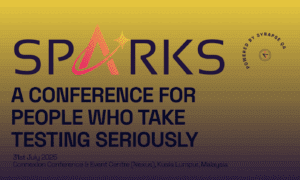Feeling overwhelmed or stressed has become a common struggle today. In Malaysia, mental health issues are on the rise, with growing awareness about their impact.
This blog will explain why seeing a Malaysia therapist is now more popular than ever before and how it can help you.
Keep reading—you’ll find answers that matter!
Affordable Therapy Options
Therapy in Malaysia doesn’t have to burn a hole in your pocket. Affordable options mean more people can get the help they need without breaking the bank.
Availability of low-cost therapy services
Many clinics in Malaysia offer affordable mental health services. These low-cost therapy options aim to reach people with tight budgets.
Some private centers even charge fees as low as RM50 per session, making therapy possible for more Malaysians.
Free and subsidized programs also play a role. NGOs like the Malaysian Mental Health Association (MMHA) provide emotional support at minimal charges.
For urgent help, hotlines like Talian Kasih are available 24/7 to aid those in crisis.
Next comes access to government-subsidized mental health programs…
Access to government-subsidized mental health programs
Affordable mental health care is now more accessible in Malaysia. The government supports programs like the Malaysian Mental Health Association (MMHA) and Mental Illness Awareness and Support Association (MIASA).
These initiatives help reduce therapy costs for those who need it most. Talian Kasih, a 24-hour helpline, offers immediate emotional support and guidance.
Subsidized therapy options also benefit low-income families facing mental health conditions like depression or anxiety. Public hospitals provide psychotherapy at reduced rates, ensuring affordability without compromising care quality.
This growing focus on affordable mental healthcare shows significant progress in addressing rising mental illness cases across the country.
Mental well-being should not be a luxury but a right, says many advocates fighting for these programs in Malaysia today.
Increased Awareness of Mental Health
People are starting to talk more openly about mental wellness. This shift is helping many feel less alone and more comfortable seeking help.
Rising mental health education campaigns
Mental health education programs are spreading like wildfire in Malaysia. Initiatives by groups like the Malaysian Mental Health Association (MMHA) and the Mental Illness Awareness and Support Association (MIASA) have taken center stage.
These campaigns teach people about mental illnesses, their signs, and where to find support.
Public schools, universities, and even workplaces now prioritize mental health awareness. Events like workshops and talks help break old taboos around therapy.
This shift makes it easier for individuals to seek therapy without judgment or shame.
Decreasing stigma around seeking therapy
Public campaigns are helping more people feel okay about therapy. Groups like the Malaysian Mental Health Association (MMHA) and MIASA use education to challenge old beliefs.
They share stories, facts, and tips that show counseling is common and helpful.
Younger Malaysians are also leading a change in attitudes. Social media plays a big role here. Platforms like Instagram and TikTok feature local therapists sharing advice on mental illness and emotional support.
This open conversation removes fear around therapy sessions, making it feel normal to ask for help.
Source: Greyspace
Diverse Therapy Approaches
Therapy in Malaysia isn’t one-size-fits-all. There are many ways to address mental health needs, making it easier for people from all walks of life to find what works best for them.
Access to various therapy types, including cognitive and behavioral therapy
Cognitive behavioral therapy (CBT) and acceptance commitment therapy (ACT) are becoming widely available in Malaysia. These methods help people manage stress, anxiety, and even eating disorders.
Clinical psychologists in cities like Petaling Jaya offer focused approaches such as individual therapy for personal issues or couple therapy to strengthen relationships.
Behavioral therapy is also advancing with options like play therapy for children dealing with learning disorders.
Dialectical-behavioral therapy (DBT), often used for PTSD treatment, is gaining attention in places like Mont Kiara and Taman Tun Dr.Ismail.
With the growing demand for mental health services, Malaysians now have access to more personalized solutions that address their unique challenges.
Availability of religious and culturally sensitive counseling
Therapists in Malaysia offer counseling that respects religious and cultural values. With Malaysia’s rich diversity, this approach helps clients feel understood and supported.
Therapy sessions may incorporate Islamic teachings, Chinese traditions, or Indian spiritual practices based on the client’s background.
This culturally sensitive care bridges gaps in understanding mental health across different groups. It encourages people who might hesitate to seek help due to fear of judgment or stigma.
Services like individual therapy often adjust methods to fit these beliefs while still providing effective treatment for stress management and emotional support.
Accessibility of Online Therapy
Online therapy has made mental health support easier than ever. You can now talk to a therapist from your sofa, no traffic jams or long waits needed!
Growth of teletherapy platforms
Teletherapy platforms in Malaysia are booming. Services like Greyspace now let people get therapy from home. More Malaysians use these services due to rising mental health concerns.
Flexible options attract busy professionals and students alike. It’s simple—log in, book a session, and speak to licensed professionals.
Counseling apps also save time for those living far from major cities like Kuala Lumpur or Petaling Jaya. With the rise of telepsychiatry, people can access therapies like cognitive behavioral therapy (CBT) online easily.
Virtual therapy accessibility benefits patients with anxiety, stress, or relationship issues. These advancements open doors to meet varying needs while offering emotional support anytime.
Flexible and convenient virtual sessions
Online therapy in Malaysia offers flexibility that suits busy lifestyles. Therapy sessions can happen at home, during lunch breaks, or even while traveling.
Platforms like Greyspace make it easy to connect with licensed professionals through secure video calls or chats.
Klang Valley residents no longer need to brave traffic for in-person therapy. This convenience attracts working adults and students alike. Virtual sessions also provide privacy for those hesitant about walking into a clinic, boosting confidence to seek help openly.
Accessing various approaches like cognitive-behavioral therapy (CBT) has never been simpler online.
Professional and Certified Therapists
Finding the right therapist matters. Malaysia now offers skilled mental health professionals who provide trusted care with empathy.
Availability of qualified mental health professionals
Malaysia is seeing a rise in skilled mental health professionals. More counseling and clinical psychology programs are now offered in local universities. These efforts lead to more qualified therapists entering the field each year.
Licensed counselors and clinical psychologists deliver therapy services that meet international standards. In places like Petaling Jaya, Klang Valley, and Kuala Lumpur, access to certified experts has improved significantly.
This growth supports Malaysians seeking reliable talk therapy or cognitive behavioral therapy (CBT).
Adherence to international standards in therapy practices
Therapists in Malaysia follow global guidelines for mental health services. This improves the quality of therapy sessions and ensures safety during treatments.
Licensed professionals use approaches like Cognitive Behavioral Therapy (CBT) and Acceptance and Commitment Therapy (ACT).
These methods are evidence-based, which means they are proven to work.
Organizations like the Malaysian Mental Health Association (MMHA) promote professional standards. They focus on training clinical psychologists to handle complex mental health cases effectively.
With ongoing development in counseling education, there’s a growing supply of skilled therapists meeting international benchmarks.
Diverse therapy approaches also boost access to help for everyone.
Conclusion
Therapy in Malaysia is growing fast, and it’s easy to see why. Affordable options, better awareness, and online access make it easier for everyone. More therapy types mean you can find what suits you best.
With skilled professionals ready to help, there’s no better time to seek support. It’s a step toward healing and thriving in a busy world!
FAQs
1. Why is therapy in Malaysia ecoming more popular?
Therapy in Malaysia is growing because people are prioritizing mental health awareness and seeking emotional support. Services like online therapy, affordable mental health therapy, and accessible options make it easier for individuals to get help.
2. What types of therapy are available in Malaysia?
There’s a wide variety, including cognitive behavioral therapy (CBT), dialectical-behavioral therapy (DBT), acceptance and commitment therapy (ACT), psychodynamic therapy, family therapy, couple therapy, and even sandtray therapy for specific needs like attention deficit or learning disorders.
3. Is online or in-person therapy better in Malaysia?
Both have their benefits! Online sessions offer convenience and privacy while in-person sessions at places like Jaya One or Taman Tun Dr Ismail provide face-to-face connection with licensed professionals.
4. Are there affordable mental health services available?
Yes! Affordable options exist through organizations like the Malaysian Mental Health Association (MMHA) or platforms such as Greyspace. Programs by MIASA also focus on making support reachable.
5. How do I find a therapist near me within Klang Valley?
You can explore clinics or centers located around Kuala Lumpur, Petaling Jaya, Selangor, TTDI, or other areas known for offering quality care from clinical psychologists and Malaysian therapists.
6. Can these therapies address relationship issues too?
Absolutely! Couple counseling and family-focused therapies are common approaches used to improve communication and resolve conflicts effectively during sessions tailored to your situation.
Read More From Techbullion



































